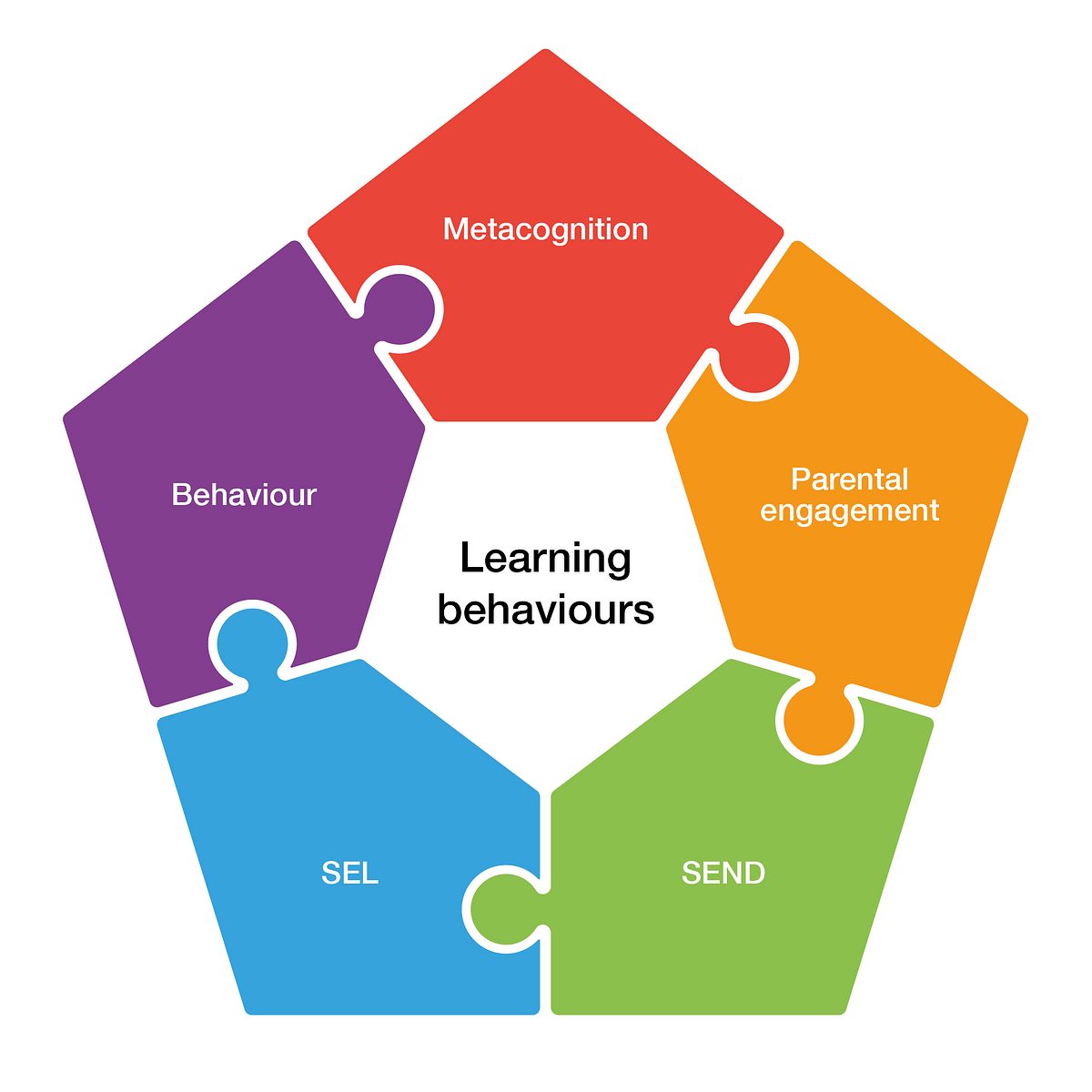Learning Behaviours
FREE Webinar looking at effective learning behaviours.


Share on:

by Somerset Research School
on the
What are the most influential factors that shape effective behaviour within the primary and secondary school settings? Where can research that provides practical behaviour strategies be found? How can behaviours that promote effective learning be developed?

Learning behaviours is an umbrella term and wrap around behavioural approach that encompasses five fundamental principles. These strands have emerged from a deep evidence base and are presented through the EEF’s learning behaviour guidance reports; Improving Behaviour in Schools, Metacognition & Self Regulated Learning, Working with parents to Support Children’s Learning and Special Educational Needs in Mainstream Schools and Improving Social and Emotional Learning in Primary Schools.
Instead of focusing on strategies to manage misbehaviour, effective learning behaviours utilises evidence to progress professional focus and dialogue towards the spectrum of factors that prospectively influence behaviour. The wealth of research in this field presents robust evidence for the importance of habit and consistent routines, explicit teaching and modelling of desired learning behaviours as well as placing relationships and learning at the centre of behaviour management.
These strategies challenge the historic status quo that behaviour management is a hard nosed business where nurture and positive relationships are deemed ‘soft’ or ‘ineffective’. Learning behaviour practices build long term protective factors which pave an evidence informed path towards developing effective behaviour that deepens learning within the classroom and school setting.

The five guidance reports combine to shape the learning behaviours pentagon and rely on an interconnected method. If one piece of the puzzle is not embedded suitably then this can disrupt learning. All parts should be individually considered but linked together to form a cohesive provision map, supporting student resilience for the learning process.
When considering the evidence around independent learning at times of homework, revision and school closures, students who possess well developed learning behaviours will have a greater resilience with which to manage the recent changeable environment and to be better able to ensure a steady continuation in their learning.
Learning behaviours become less fluent in times of transition and especially when there are changes at home. Although students from disadvantaged backgrounds have been disproportionately affected, the last twelve months has made it impossible for all students to be exempt from these factors. Therefore, developing effective learning behaviours holds significant relevance within the current social and educational climate.
In response, many schools have implemented changes to both procedure and pedagogy which align with the principles presented in the learning behaviour guidance reports. Due to extended periods of remote working, a greater focus has been placed on supporting students to develop metacognitive skills enabling self-regulation of learning. Similarly, with students spending significant periods away from school, through regular communication, a closer link has been developed between schools and families.

As school leaders brush epidemic induced dust off their school development plans, with enough breathing space to look forward for the first time in twelve months, there is an opportunity to build on the significant successes that have been achieved over the last year.
It is likely that several new school initiatives, started over the course of the pandemic, could be categorized as learning behaviours. These guidance reports not only present a comprehensive evidence informed approach towards behaviour processes but also provide a potential pandemic ‘silver lining’ for schools to build upon the effective practices that have recently emerged.
If you would like to find out more, sign up to to our FREE Learning Behaviours twilight webinar on Thursday 6th May 2021. Please see the link below for more information and to register.
We are planning to run a full training programme in the next academic year to follow on from this event.


Blog -
Using the EEF’s implementation framework and tools to support school improvement work, by Louise Gregg & Jaimie Lall-Sachdev

This guidance report unpacks how to implement new approaches well, emphasising the importance of a people-centred approach

Blog -
by Vicky Castle, Assistant Headteacher at The Blue School in Wells
This website collects a number of cookies from its users for improving your overall experience of the site.Read more